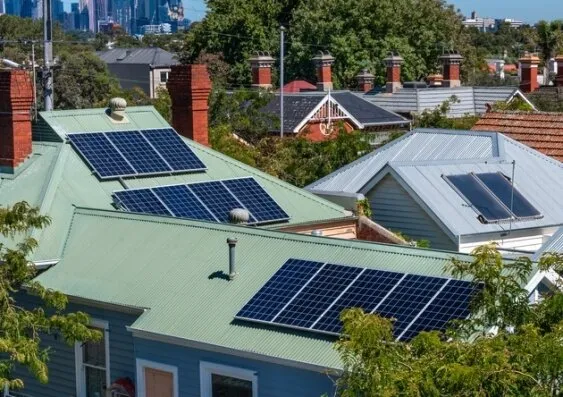Solar calculator aids Australians forecast price savings of panels and also batteries
- A new version of UNSW's SunSPOT solar calculator now covers every one of Australia as well as allows households, small businesses and also councils to obtain independent solar and battery savings estimates.

A recently upgraded version of SunSPOT has been released to assist customers as well as businesses calculate the solar power potential of their roofs.
The online application, established by the Australian PV Institute (APVI) and also UNSW Sydney, had formerly been available only in a handful of areas in New South Wales.
With assistance from the Australian Government, it now works for places throughout the nation and also comes with considerable upgrades, more exact estimates, a new user-friendly interface, as well as a version that is freely available without a council subscription.
" Finding out how much you can conserve with a battery, or what size solar system can fit on your roofing, or obtaining estimates on the best system size for your electricity use has never ever been simpler or much safer," states Dr. Anna Bruce, SunSPOT Project Leader and Associate Professor of Renewable Energy Engineering at UNSW.
" SunSPOT V3 has been constructed by engineers at UNSW's world leading School of Photovoltaic as well as Renewable Energy Engineering specifically to assist individuals understand what solar can do for them-- not to market solar.
" It's the only independent device with this degree of analysis available to the general public in Australia. All various other solar calculators seek to record individual info and create sales leads.
" Currently, with across the country shipment and also enhancements to its usability and also accuracy, SunSPOT will certainly be able to help the large majority of Australians confidently navigate the complex solar market."
Responding to questions about solar and also batteries
Previous versions of APVI's flagship tool have only been available in areas where there is spatial mapping LiDAR data available and the regional council has actually used up a subscription. Now, with the assistance of the Australian Government, a "standard" version of the tool that does not need LiDAR data has been released as well as can be used absolutely free, anywhere.
Dr. Mike Roberts, SunSPOT Project Leader as well as Senior Research Associate in the School for Photovoltaic and also Renewable Energy Engineering at UNSW says, "Householders no longer require to depend on salespeople to inform them. With this most current version of SunSPOT, everybody can obtain dependable, customized answers to common questions regarding solar and batteries."
In two minutes, SunSPOT users can learn what system size will give them the very best return on their investment as well as get an estimate of the expense and yearly savings.
They can additionally compare the expenses and annual savings with various battery sizes, responding to the question in everybody's heads: "Should I obtain a battery?"
Dr. Roberts says, "The APVI has actually located that Australia has the possible to mount 179 GW of rooftop solar capacity-- yet thus far we've set up less than 10 percent of that.
" 179 GW of solar would create even more electricity annually than the overall existing yearly electricity usage in the national electricity market.
" Rooftop solar has a leading part to play in reducing Australia's emissions."
SunSPOT's clever mapping tool allows users to drag and drop scaled groups of panels onto their roofing system so they can see the amount of panels will certainly fit as well as where they can go.
Recognizing finest place for panels
There are two versions of SunSPOT available: the premium version that includes mapping the area with LiDAR data as well as is spent for via a subscription by the regional council, and the standard version that is available to everybody, everywhere without the council subscribing.
The premium subscription-based version of SunSPOT determines the most effective locations for solar panels with red dots on the rooftops.
Spatial mapping LiDAR data enables it to review the shape, slope and orientation of the roof. It can additionally approximate the amount of shielding throughout the year on every 0.25 m2 area on the roof covering, and the impact this carries bill savings. This is combined with Bureau of Meteorology climate data for the area.
Users of both versions can add their smart meter data as well as electricity tariffs for much more exact estimates.
Also read
